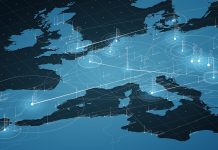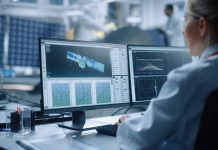Here, we speak to Manuel Heitor, Portuguese Minister of Science, about how science and higher education in Portugal are helping to turn the country into a knowledge hub for future generations, amongst other things
Manuel Heitor is the Minister of Science, Technology and Higher Education for Portugal. He was formerly the Secretary of State for Science, Technology and Higher Education from 2005 to 2011. He founded the Lisbon Centre for Innovation, Technology and Policy Research in 1998. He is also a Research Fellow of Texas University and co-founder of the international network Globelics.
In this interview, he discusses plans for the future of Portugal, highlighting the necessity of a relationship between the public sector and research institutions, touching on his strategy for improving employment and taking us behind the scenes on Portugal’s leap into the stars, with their new Space Agency.
First, tell us your thoughts on how science and higher education in Portugal are helping to turn the country into a knowledge hub for future generations.
Certainly, that is true everywhere and anywhere, it is not news, we have known that for many, many decades. Certainly, learning from the experience of the United Kingdom (UK) amongst many other places. But more and more we have realised that science creates employment, creates markets and, in particular, it creates better employment.
And this process, we know is complex. We should and we are, engaged in an overall strategy to speed up our confidence to develop our knowledge. What we did over the last years is to increase public expenditure and to stimulate business expenditure in a way that we can put together a path in the coming decades, so that we can double public expenditure by 2030 and multiply by four, our business expenditure.
The last two years have given us the belief that we can possibly do this by creating more and better employment, again, since 2015 we have been growing steadily in this area, since 2015 we have been growing steadily in this area year after year. And the key issue is how we can guarantee this, steady increase, in the overall effort, particularly by increasing business expenditure. We have improved all our landscapes of institutions through their sophistication and launched a programme to strengthen our research institutions but at the same time, to offer new institutions. Particularly, we offer deeper ties between the business sector and the public research institution by setting up a programme to establish what we call cooperative laboratories, to fuel the creation of better employment, through knowledge and business.
So ultimately, employment is one of the key benefits coming out of the work you’re doing?
Yes. And there is the belief, that we want more and more to make a reality, that science has created many jobs. Through science, through knowledge-related activities, we can certainly foster better lives at large.
So in relation to education and science, why do you think they go well together? Why do they have such a good relationship, especially in Portugal?
Nowadays, more and more, we cannot rely on unskilled people. Because value creation is not sustainable in a society which needs to learn and adapt, fast. And again, let’s say that we are at the start of the process, particularly in relation to promoting learning capacity, of every single citizen and engaging with them. Through a process that starts early in your life, through scientific culture and through education, this process will give people the ability to learn more and the capacity to identify opportunities to acquire knowledge.
Yes, we are seeing a similar thing in the UK, where we need more people to be trained in science, technology and engineering but they are not getting the message when they are young. What are you doing in Portugal in regard to that matter?
Essentially, we have to diversify in the way we think. There is certainly no one size fits all. But it requires a set of diversified institutional contexts, diversified learning problems, education does not have to be longer. More and more, in reality, we have short courses at the pre-university level, but also at a post-grad level and the key issue is training adults to adapt over life. Education should not be concentrated on the young generation but the process which we can give youth the capacity to learn in a fast-changing economic world. And we should require people to learn throughout all their lifetime, something that cannot be balanced with a traditional education setting. So, we need more and more to adapt from our traditional institutions to short-timings and to diversify the supply of programmes. Certainly, combining the traditional long-term education with more and more new programmes for short-term is something that should be done, together with the employment. It’s not just a relationship of supply but also of the design of the education system which is the core responsibility of the actors involved.
So you want to encourage a nation that is constantly learning and unafraid to go back into education when it is necessary?
Exactly, definitely. But this requires the core responsibility to be shared with employers. And a key issue in public policy is, in fact, stimulates the sharing of that responsibility and that is the reason why we are planning to build resources and new collaborative institutions, where we stimulate with public funding a fraction of how to promote partnerships between traditional businesses and research institutions, to culture, IT, the public sector and every single area of activity. We need employers to partner with different institutions. It is particularly important to provide the correct infrastructure. This can only be done if people are engaged in research to look at the future.
With science steadily progressing over the last 20 plus years, why is the government in Portugal keen to encourage research within the country further? As you just mentioned research is a key part of enabling education.
Science is complex and science is social. That’s the reason why we need to promote scientific culture and thought. It is easy for me as Minister of Science to say this, the key issue is, for instance, look at your sector. We know today that fighting for cancer, for example, can be done if we do more research, particularly to prevent cancer because we also know that if we do more, we can prevent more. Increasing and enhancing the beliefs of science has become part of modern society, as a responsibility of society. This is a challenging that involves everyone, it involves the need for a continuous updating on their learning category.
I can see this is a passionate priority for you. So what would you say are the priorities of the Ministry of Science, Technology and Higher Education?
More than priorities we have to understand that the promotion of digital skills is very, very important in any scientific or social context. Through digital media you can access so much information and, therefore, opening up access to digital skills, is easy and very critical now so we have that strategy to re-open the internet for every citizen. But beyond excess, we need to also look at participation and so the way that people participate at large. And also, in the realm of any scientific strategy, multiple things will engineer the creation of jobs. Therefore, the relation between science and employment is more and more important particularly for people at large to understand and to invest more and more in science. So, I would say excess participation has relevance because ultimately, we need a better relation to scientific ones.
I know that Portugal has recently established a National Space Agency, would you like to tell me more about that? What are your aspirations with this organisation?
Portugal Space is an agency to be primarily considered as an instrument of the Portuguese government, in close articulation with the Regional Government of the Azores, to make Portugal a place of space-related innovation, based on scientific excellence and competitive industrial capabilities, generating high-level jobs, inspiring young generations and placing Portugal as a significant contributor of progress in the world, with a particular action on emerging forms of the “New Space”.
To achieve these objectives the agency will be oriented to guarantee that, by 2030, Portugal is widely recognised as a global authority in the science and economics of space-Earth-climate interactions, making particular use of “double-use” technologies for Earth Observation and including a special focus on secure and safe space- ocean interactions and methods of data science for the benefit of society.
Space and the development of the technologies that are associated with or derived from it are now recognised as a driver of innovation by several nations, representing an imperative for the promotion of social and economic progress and for international security. In fact, the security and well-being of our society are increasingly dependent on information and services provided from Space and it is important to point out the increasing impact of Space systems on fields such as agriculture, fisheries, infrastructure, urban development, defence and security and even the public health sector and epidemic monitoring, among others.
It should also be clear that Space should be seen as a public good, to be associated with our institutions and collective ambitions and it is critical to continue to democratise access to Space. It is in this context that Space technologies are inescapable for the future of mankind, requiring continued investment in education and culture for Space and increasingly attracting future generations of young scientists, engineers and entrepreneurs for new horizons driven by space systems. This requires strengthening initiatives to foster the scientific culture of the population at large, together with the interest of youngsters in the areas of science, technology, engineering and mathematics, as well as promoting space for education and culture. In addition, by promoting the dissemination of educational, scientific and cultural contents to populations in remote areas with difficult forms of interconnection, we all will guarantee that space technologies can become a critical instrument through which, desirably, it is possible to enable the world for peace.
In Portugal, on the continent as well as in the archipelagos of the Azores and Madeira, it is essential to continue to support the growth of the Space sector and related applications. Twenty years after joining the European Space Agency (ESA), Portugal is now considered a success for rapid adaptation and integration into Space programs. The OECD analysis of Portugal’s return on investment in Space systems shows a multi- plier effect between four and five of the public funding of R & D activities. This evolution is the result of the efforts of scientific institutions and companies to develop skills and competencies in a variety of areas, including telecommunications, cyber systems, augmented reality, Earth observation, navigation systems, space exploration and launcher technology, among many other subdomains. This process of training and recognition of the Space sector that emerges in Portugal has been the target of the recent strategy of strengthening scientific diplomacy and international scientific and technological cooperation, based on five lines of action, as briefly described in the following paragraphs.
First, the “Portugal Space 2030” strategy, approved by the Government in February 2018 with the ambition of multiplying by ten the volume of activities in Portugal in the area of Space, naturally within the scope and in articulation with the “Innovation Strategy for Portugal 2018-2030, which aims to “effectively converge to Europe by 2030 and achieve R & D investment of 3% of GDP”, creating about 25,000 skilled jobs in the period 2018-2030. The need to stimulate new markets, public and private partnerships in Portugal in the international context implies the development in Portugal of pilot projects of international relevance and a demonstrative context in diverse sectors, including agriculture, fisheries, monitoring of major infrastructure, urban development, defence and security.
The implementation of the “Portugal Space 2030” strategy includes three complementary instruments, as follows:
- i) A new legal regime through the “Space Law” approved in 2018; ii) The creation of a space agency, “Portugal Space” (www.ptspace.pt), installed in March 2019; and iii) Ongoing development of a foreign direct investment attraction strategy.
In particular, the “New Space Industries” sector considers a new wave of actors and business models in the international space sector characterised by the capacity to attract private financing, in view of predominantly commercial markets and in need of communication and information systems based on mega-constellations of micro and nanosatellite. New Space opens up new opportunities for Portugal, as well as other small and medium-sized countries, namely at the level of production and use of data, based on specific technological platforms dedicated to Earth observation for social and economic activities and at generation level of data and infrastructures. It includes the need and challenge of developing and producing satellites, mainly micro and nano-satellites and the development of mega- constellations, with developments expected to democratise access to low-altitude orbits (LEO) and synchronised with the sun, that is a Sun-synchronous orbit (SSO).
Second, the development and promotion of the “Atlantic Interactions” agenda and the Atlantic International Research Center – AIR Center, in the form of an innovative network institution driven by an international R&D cooperation program to strengthen knowledge on space climate-ocean interactions through North-South/ South-North cooperation. It includes the installation of an Earth observation centre on Terceira Island, in conjunction with ESA and in the form of an ESA_Lab @ Azores.
Third, the launch of the “Azores International Satellite Launch Program – Azores ISLP” (www.azoresislp.pt) and the procedures for the installation and operation of space infrastructure for the launch of mini and microsatellites in the Autonomous Region of the Azores. Its location on European Union territory in the Schengen Area, as close to Continental Europe as it is to the American continent and with extensive ocean cover over 1,500 km in any direction, offers absolutely unique advantages for the promotion and development of “New Space” in Europe. It builds on the ongoing reinforcement of ground stations for satellite monitoring and stimulates a new challenge for Europe at large in terms of the need to consider and stimulate a new generation of launchers in terms of safety and environmental impact, as well as ensuring the unprecedented worldwide installation of a spaceport open to all international actors and operators. In other words, the installation of a new generation of environmentally sustainable and safe satellite launcher services, open to the world, can create a new positioning of Portugal and Europe at the world level.
Increasing international competition in this context has emerged rapidly, requiring a new strategy in the process of valuing the positioning of Atlantic and the real opportunities that the Azores have in this area. Portugal’s positioning of the Atlantic is, thus, critical and opens new opportunities in the international context. It facilitates, in particular, the installation of observation and measurement infrastructures in a spectrum not reachable or replicable in any other country, which represents an effective comparative advantage.
Fourth, the promotion of Portugal in the world through the reinforcement of international partnerships through the “Go Portugal – Global Science and Technology Partnerships Portugal” Program. The international prestige already achieved demands that Portugal, in the near future, positions itself as a knowledge-driven economy, with the capacity to take on the new challenges at the frontiers of the production and diffusion of knowledge. It is under this context that Space plays an absolutely fundamental role. This is, moreover, imperative for a country that seeks to affirm itself in the international scenario for science and innovation.
Activities under development include:
- The expansion of the MIT-Portugal Program and the UT Austin-Portugal Program with a specific re-orientation for space research and innovation;
- A formal agreement for a specific partnership with the Chinese Academy of Sciences, CAS, for microsatellite development, through the installation in Portugal of “STARlab” in close cooperation with business companies operating in Portugal.
Fifthly, the promotion of the “PERIN-Portugal in Europe Research and Innovation Network”, aimed at guaranteeing an effective convergence strategy for the “Europe of Knowledge” by 2030 and facilitating the implementation of the “Innovation Strategy for Portugal 2018- 2030”, through a joint and profound debate throughout the country and in priority areas for the promotion of research and development (R & D) activities, including health, artificial intelligence (AI), production and agri-food technologies.
In this context, the PERIN 2019 “+ Science, + Europe” journeys are being held between March and April 2019, under which it is Portugal’s intention is to reinforce and double its participation in the next European Research and Innovation Framework Program (i.e., “Horizon Europe”) and related programs relevant to research and innovation activities (i.e., the European Space Program and the “Europa Digital”, among others).
This is how the national agenda “Portugal Space 2030” mobilises various sectors of society for Space, as valued as a public good, fostering new opportunities for institutional, industrial and international cooperation and contributing to the development of innovative and competitive technologies in the international market
Manuel Heitor
Minister of Science, Technology and Higher Education
Portuguese Republic Government
www.portugal.gov.pt/en/gc21/ministries/science-technology-and-higher-education/minister











